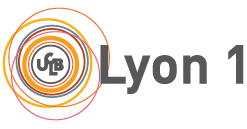Microfluidics is nowadays found in various areas, from fundamental research labs to day to day medical devices. They indeed provide convenient platforms to study chemical and biochemical analysis at high throughput and with low sampled volume, or perform in vitro cell or organ on chip culture with a highly controlled environment. Over the last few years, applications toward cancer or development biology have been on the rise. In this course, we introduce the basic principles at play in such systems as well as their fabrication techniques and applications to life sciences.
We discuss methods, tools, and measuring devices to create microfluidic systems. Different types of lithography methods are presented with hands-on experiences for creating simple devices. We discuss fluid behaviors at the micron scale in microchannels as well as the components for controlling fluid flow. We also discuss applications to cellular analysis including nucleic acids analysis, DNA hybridization and sequencing, and protein analysis.
The practical implementation of the methods will be illustrated by a visit of the NanoLyon clean room facility, and of the prototyping platform of iLMTech series, and by a Practical Lab in pairs.












